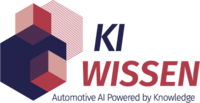Close
How can I create the needed millions of scenarios?
How can I avoid the test explosion problem?
How can I find out if my tests are passed or failed?

How can I create the needed millions of scenarios?
How can I avoid the test explosion problem?
How can I find out if my tests are passed or failed?
Oxford University Innovation Ltd (OUI) is the technology transfer company of the University of Oxford. One if its key actitivitys is the provision of technical and scientific consulting services to external organizations through the expertise of academics in the University. OUI has provided consulting services to BTC Embedded Systems AG in the field of CBMC bounded model checker for C programs through Prof Daniel Kroening and his colleagues from the Department of Computer Science.

“As an associated institute of the Carl von Ossietzky University in Oldenburg, OFFIS has, since its formation in 1991, converted scientific know-how from computer science into prototypes which are then developed further into marketable products by commercial partners. Hereby, OFFIS provides research and prototype developments for companies and institutions – and this at the highest international level. OFFIS is organized in three application-oriented research and development divisions: Energy, society, health, and production.”

DLR Institute of Systems Engineering for Future Mobility
The DLR Institute of Systems Engineering for Future Mobility located in Oldenburg is researching methods for developing and assessment of automated and autonomous traffic systems.
The focus is on the development of new efficient methods and tools of systems engineering for the proof of functionality (verification) and practicability (validation) as well as the further development of trustworthy systems.

Institute of Automatic Control of Leibniz University Hannover
The work at the Institute of Automatic Control is dedicated to the development of modern methods of control engineering and their application in various fields, particularly in medical technology, systems medicine and robotics.
Optimization-based control and estimation methods, nonlinear systems and control theory, as well as distributed and learning control systems are of particular interest.


Project Partners:
MAN Truck & Bus SE, Knorr-Bremse AG, Leoni AG, Robert Bosch Automotive Steering GmbH, FERNRIDE GmbH, Fraunhofer-Institut für Angewandte und integrierte Sicherheit AISEC, Technische Universität München, Technische Universität Braunschweig, TÜV SÜD, Autobahn GmbH
Timeframe: 2021 – 2023
“In the research project KI Wissen, methods for the integration of existing knowledge into the data driven AI functions of autonomous vehicles are developed and examined. The aim is to create a comprehensive ecosystem for integrating knowledge into training and securing AI functions.”

Project Partners:
Continental, Bosch, Valeo, Altran, AVL, EFS, DLR, Fortiss, Fraunhofer, OFFIS and more
BTC Embedded Systems is a member of the industrial advisory board of the Step-Up!CPS project.

Industrial Advisory Board:
Timeframe: 2016 -2019

Timeframe: 2015 -2018
“Future mobility solutions will increasingly rely on smart components that continuously monitor the environment and assume more and more responsibility for a convenient, safe and reliable operation. Currently, the single most important roadblock for this market is the ability to come up with an affordable, safe multi-core development methodology that allows industry to deliver trustworthy new functions at competitive prices. ASSUME will provide a seamless engineering methodology, which addresses this roadblock on the constructive and analytical side.”

Timeframe: 2011 – 2014
“ARTEMIS project MBAT provides European industry with a new leading-edge V&V technology in form of a Reference Technology Platform (MBAT RTP) that will enable the production of high-quality and safe embedded systems at reduced cost in terms of time and money. This will be made possible by a new and very promising approach in which model-based testing technologies will be combined with static analysis techniques.”

The embedded safety-critical systems design and development industry is facing increasing complexity and a variety of systems and devices, coupled with growing regulatory constraints while costs, performance and time to market are constantly challenged. CESAR will bring significant and conclusive innovations in the two most improvable systems engineering disciplines:
-Requirement engineering in particular through formalization of multi viewpoint, multi criteria and multi level requirements,
-Component based engineering applied to design space exploration comprising multi-view, multicriteria and multi level architectural trade-offs.
University of Oldenburg, University of Freiburg, SICK AG
官公庁向け研究プロジェクトに関する当社規定
Efficient tool chains require close collaboration
Copyright © 2024 BTC Embedded Systems & BTC Japan